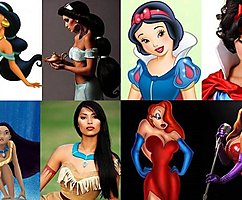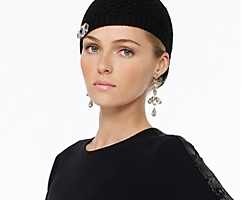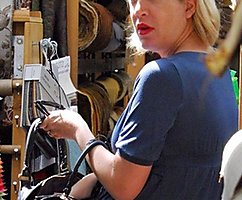Where does the clutter in the house: 6 types of garbage amateur
 Bashny.Net
Bashny.Net
Now in Japan, the real boom 整理 整頓 - seyriseyton - the organization of order and cleanliness to getting rid of all the excess. The book bestsellers regularly get specialists in cleaning and order, in addition to the samples to the Western reader Marie Kondo, is TOMO (Ёsidzima Tomomi), the Order of Prince (Hiroaki Kojima), Yasushi Komatsu, Eiko Ando, Nagisa Tatsumi and many others.
Among them are really interesting books on the organization of family life, there is a vague collection of tips, how to wipe the dust behind the TV Feng Shui or from old newspapers naskladyvat boxes for storing small things.
Instead of traditional television with dressing Cinderellas of pajama pants in fashionable evening gowns are now transmitting the transformation of houses from landfills in the purity of the temples. In principle, follow all this is quite interesting, but today I would like to talk about the book, standing alone in the stream of popular trends.

This is a book "Life without things: how to free the house and the heart" of authorship Yukiko Kaneko (Yukiko - personal name, Kaneko - last name). Ms. Kaneko - a professional writer nonfiction on improving everyday life, from under her pen came out a lot of books on the organization of the wardrobe, the assimilation of useful habits in the home, cleaning, a thousand ways to save in the household, etc.
But specifically, "Life without things" is very different from the collections of ready-made recipes guidance order.
What kind of picture you have painted yourself in the head with the phrase "life without things"? Severe austerity and minimalist interior a la a picture from a magazine, two books and a vase art are on the table, all the rest - on the release? Or austerity writing it with a thick book every penny spent, spend too much do not you dare? Neither one nor the other. What is this book?
It's quite hard to read the thing, unhurried, not exciting, but it is such a book, it seems to me, should start their way to clean house. Because it does not begin with the order of things, and on the order in the head.
Because that's what the book looks into the depths of chaos, not looking for one-time beautiful ways all sort through, but analyzes the causes of unnecessary things and seeks to prevent re-cluttering the space. It responds to global issues:
Who is to blame for the mess? How and why the trash is taken? And what to do, so it was not?
Approach Yukiko Kaneko absolutely devoid categoricalness. You 100500 details scattered throughout the house, but you do not interfere? That's good, then you change and do not need anything.
Ms. Kaneko almost after each paragraph stipulates "if you do well, but it suits you - do not take my advice in my head." For brevity, I will miss in the future, these reservations, just remember that this book did not give orders to anyone what to do and how to live, to think only offer together.
Reasons cluttering
Yukiko Kaneko highlights the reasons, the coating in the peculiarities of the nature of the person, and causes more global view. Let's start with the second.
We have become richer and the thing - cheaper. How many details have been generations of our grandparents? Note, the right equally for Russia, but for Japan: before the absolute majority of the population simply does not have the amount of things that we have
. Even quite not rich woman today can afford to buy a year of knitted T-shirts X, Y and Z summer dresses slippers. We have the opportunity to purchase the office, kitchen utensils, all kinds of picture frames, candles and other souvenirs on an incredible scale.
For our grandparents simply did not exist the issue, buy or not buy wipes to wipe the microwave, iridescent tsvetovydeliteli text or tenths shoes. But we still bear in themselves the installation of the older generations, for which an abundance of things for quite objective reasons associated with wealth and comfortable life in abundance.
And do not buy too much = plead disadvantaged financially, somehow uschemlёnnym, defective.
What I really beggar something, do not buy for the summer?
Why are we so far to dragged gasoline burned anything to take.
Well, let garbage, just three hundred rubles - not like it, throw
. Although in reality the world has changed, and littered with toys, crayons, papers and incomprehensible nonsense desk drawers they not characterize your life as rich and comfortable. On the contrary, often because of the abundance of superfluous things, our daily life is deprived of comfort: annoying perpetual mess, clean up is difficult and unpleasant, desired things hard to quickly find
. We are more willing to spend money rather than time and effort. The second follows from the first, the world's readily available inexpensive items to us much easier to buy one more thing than how to make something work at an alternative solution to the problem.
It appears in our apartments special chistilki corn and juicer juice from lemons. Our grandmothers have changed the appearance of the same dress, When sewing him different collars, belts and putting pinning brooches. Tell me honestly, who among us is willing to bother so today? We'll just go down and buy a new dress. Or two. Or three.
We have lost a great world of the family, neighbors and friends. In today's world, it is reducing the amount of human social relations. And it increases in proportion to the need for things. Yukiko Kaneko wrote that dtsat years ago in Japan at the birth of a child did not have to buy a crib, stroller, mount raspashonok and rattles, gave many relatives, neighbors, friends, neighbors and relatives and friends, etc.
< br> If in the same house on the street was a TV, then to the man on the night gatherings around the TV came the whole street. And the debate on what to watch, it was not - the channels once, and two obchelsya. If, for example, every six months needed a sewing machine or hand saw, did not need to buy, always had someone lend. The world around us and we ourselves have changed dramatically.
You are nothing like?
Another interesting point noted by the author: Ms. Kaneko reflects on how the availability of things is reflected in social relations. We often easier to buy a suddenly need a thing, you go to the neighbors / friends to ask, feel obligated. And these practical reasons for the contacts are always made up a significant part of the reason to meet and socialize, it is not surprising that the world is filled with things to lose the connection between people.
There are objective national and cultural characteristics that contribute to increase the number of items in the house.
Yukiko Kaneko identifies three characteristics of Japanese life:
the presence of elements of traditional culture (kimono in the closet, hina dolls for girls Day, Buddhist altars, etc.)
parallel existence of European and Japanese objects of everyday life, the simplest example - cutlery. The average Japanese family has rods and holders for sticks and spoon-fork-knife.
clearly marked change of seasons and the presence of the cold season. The big difference between clothing for summer and winter increases the number of elementary necessary garments. And do not forget about the more warm blankets, heaters for the winter and fans for the summer.
Last for Russian oh-oh-oh, how true! Japanese women do not suspect, than autumn coat is different from winter coats, down jackets and coats, and the presence of autumn and winter boots they too would be surprised. And numerous hats, scarves, gloves and mittens? In this regard, the Russians have reason to have a lot of things even more than that of Japanese women.
The cold season and especially agriculture give us another cultural characteristic: preserving food for the winter. To make jams, pickles, we use a huge number of subjects, from the giant pots to kryshkozakatyvayuschih machines. And then these subjects, as well as banks with weld and nasolennym need to be stored somewhere.
Specific namely cultural objects are much smaller, however, if you think there will be too. I have in the chest is a certain number of icons donated as a believer in the need they have none at all, the desire to decorate their house too. But I can not get out. The hand does not rise. The cultural code does not allow.
The line between a happy shopping and shopping as a problem rather thin.
Yukiko Kaneko, in principle, very positive about shopping and buying human needs. Personally, I was very surprised, usually authors calling to get rid of unnecessary things, on the contrary, passion for brand acquisition last words. Ms. Kaneko said the pleasure of shopping natural and even beneficial to humans.
1. Buying new things - this line of thought to the future, the formation of positive emotions, anticipation of enjoyment from things
. 2. It is a significant part of planning for the future, when we choose our way of life and activities, we will buy items that match the lifestyles and pursuits and necessary for them
. 3. The special pleasure for purchase of household goods. Ms. Kaneko said the normal human desire and right to improve your home, the quality of everyday life in this house, the desire to make your home more comfortable, beautiful, bringing joy.
The problem comes at a time when the expectation of pleasure from the use of items does not coincide with reality. More precisely, when in reality we do not use the purchased thing and do not get scheduled pleasure.
Things are taking up space in the house and does not bring happiness, on the contrary, caught the eye causes mild irritation. We spent our resources, time and money, and in return did not get joy. Unsuccessful purchase happen at all, but if in your life there is an imbalance between the regular waste of resources and benefit, it is an occasion to reflect on the problem.
When the natural desire for a better life turns into shopogolizm? Yukiko Kaneko believes that the main reason shopogolizm - it is not boring, not stupidity and bad character. This feeling of lack of control over their own lives.
When a person feels cornered in some significant areas where he feels that he is living is not the case, as we would like, it is trying to cope with this feeling, "leveled the score," directing their energies in the direction where it can decide for itself. And easily accessible shopping world is happy to take on this role.
The ability to choose the goods you like and buy it on their own volition and choice - one of the key components of the fun of shopping process. And when it is important for a person, this component, it ignores other, such as the pleasure of a good purchase, from sipolzovaniya things chelochek starts buying Oradea is easy to buy.
And if you suddenly think that you or someone in your family suffers shopogolizm - it is an occasion to reflect on what is wrong in this man's life where he feels weak, vulnerable, not controlling the situation
.
Types of internal 'waste lover »
There are many traits and characteristics thought to increase the amount of unused and neprinosyaschih joy of things in the house. Yukiko Kaneko distinguishes 6 types of thinking and way of life of the person prone to littering the surrounding area. Of course, one can combine the features of several types.
Type: Shopping Mom
These people all laid out on the drawers with dividers in the closet things neatly stacked and categorized on the couch and the TV remote control - covers and cosmetics and household chemicals simply can not suddenly end, as in a case always have a spare bottle
Clothes folded in the chest like a seasoned traveler in the backpack: a single lumen, piles and svertochki adjusted to each other with a jeweler's precision. Why such zealous hostess are very dissatisfied with the existing order? Because housing looks cluttered because of the abundance of subjects, and often even in the ranks of neatly folded stacks and difficult to find the desired item among dozens of similar.
Ms. Kaneko recommends to the Economic mums to adopt the principle of one-fifth of not less than one fifth of any space - box, shelves, boxes - should be free. Plus regular shuffling of papers and clothes with discarding irrelevant and unnecessary.
Type: Too busy
And things somehow do not seem too much, but on restoring order there is simply no time. These are people who live a very busy life, in which an important place occupied by work, socializing with friends, going to clubs / cinema / restaurants, etc., and homework time and energy discharged as a residual.
This type often has a tendency to purchase devices that facilitate the work and time-saving: the robot cleaner, kitchen super-harvesters and multivarok, dishwashers. And what is most sad - that this type of Soup usually idle without the use of a robot cleaner forever is not charged, combine laziness and no time to get, to disassemble and assemble, washed, and every evening the family might be a scandal, who is it that will load the dishes in the dishwasher.
In this type there is always some "pain points" hot-spots that you need to train yourself to regularly put out. Usually, this bag, desk, entrance hall, some other horizontal surfaces in the house where thrown into disarray things.
In addition to the regular and routine sorting out these hot spots (here thought Yukiko Kaneko closely echo the ideas flayledi), it is important to organize these "problem areas" so that they really had a place for all regularly used items. And, more importantly, these people should be treated with special care to organize their time.
Do not clog the schedule of cases to the eyeballs, if not to leave yourself at least one day / evening a week to do nothing, in bulk fatigue ruin on the vine all the great plans targeting the super-order. And yes: cleaning, the balance of things, thinking through household improvements, charging and loading the dishwasher cleaner, too, takes time
. This has to be put up, and somehow include in its list of important, relevant and interesting cases small everyday things, otherwise they themselves will not do with any trendy devaysom.
Type: Shopping Queen
This is the same girl who just got paid, is already beginning to wait for the next, because she already has what you want to buy immediately. This is a man who truly believes that every season it is necessary to buy a new wardrobe items, not a skirt / dress, no. Urgently needed and bag, and shoes, and even pants and top, etc. This type of people do not exist large accumulations.
There were thousands of free dtsat? Urgent need a new refrigerator or TV. Such people often have a passion for decorating the home, which is manifested in constant purchasing candles / frames / boxes / images / wards, etc. Accommodations often looks congested and cluttered objects designed to decorate it.
This type of people, according to Ms. Kaneko, the other can be difficult to part with unnecessary things, the queen too much love and emotion invested in the purchase of things, then to throw it. If you do not get yourself into practice tips on getting rid of excess stuff - need help from the human, professional or simply a close friend / relative. And if a stranger chelochek says: "Throw away" - dutifully send the thing in the trash
. Another useful tip for shopping Kings - try to fly for fun events and more services than things. Not a new blouse, and a new hairstyle, without shoes, and manicures are not five hundredth souvenir on the wall, and a ticket to the cinema, theater or concert.
Type: Too tired
Basket full of dirty laundry. Mountain of dirty dishes in the sink did not decrease ever. Just thinking about what will need to wash the dishes, do not want to cook, and you can do a sandwich. The floor was littered trash: scraps of paper, some candy wrappers on the table the empty boxes and plastic bottles. Under the bed fell sock, I know he is there for a month.
Yukiko Kaneko believes that this type differs from all the others is the fact that this is not the regular type, single state. Condition of extreme fatigue, which can come, in principle, anyone, even a pretty neat person. In conditions of severe stress and fatigue people corny does not have the strength to clean up something on the spot.
Therefore, in the case of running untidiness treated do not result, but the reason: to get enough sleep on a regular basis, in the morning at least a little to lunch, during the day there is a regular, at least a couple times a week for a walk in the fresh air. Важно гулять на свежем воздухе — хотя бы пару раз в неделю неторопливо пройтись пешком, общаться с людьми — встретиться разок с друзьями поговорить и развеяться, соприкасаться с живой природой — купить и принести домой самый крошечный букет цветов. Уборка, стирка и готовка в большинстве случаев, по мнению госпожи Канэко, подтянутся сами.
Тип: Скупая бабушка
Это люди, которые не в состоянии расстаться с любой, даже самой ненужной вещью. Они оставляют красивые упаковки и ленточки от подарков, никогда впоследствии их не используя. Это у таких хозяюшек продукты припасены в таком количестве, что срок их годности заканчивается до того, как дойдут руки всё это употребить в пищу.
Из отеля прихватываются одноразовые зубные щетки, которые так и остаются валяться нераспакованными в дальних ящиках. Из журналов тщательно вырезаются и собираются в папочку рецепты, по которым никто не готовит. В большинстве случаев за советом и помощью обращаются не сами Плюшкины, а их родные и близкие, уставшие жить на свалке из мусора, который «точно когда-нибудь пригодится».
Если Скупая бабушка сама решится что-то менять, главное, запомнить, что выбрасывание вещей — это не столько разовая акция, сколько постоянный контроль баланса входящего/выходящего. А для родственников автор предлагает следующую стратегию:
выбрасывать тайком совершенно явный мусор (например, пакеты из-под молока, из которых Скупая бабушка уже полгода собирается сделать детям поделки),
методично убирать неиспользуемые вещи в коробки в чулан и т.п.,
изображать «одалживание» и «раздаривание» предметов близкими друзьями и родственниками. «Мама, можно я заберу твою изъеденную молью шубу? Хочу научиться шить меховые варежки». «Бабушка, моя подруга ищет стул на кухню, можно я ей отдам наш расшатавшийся стул с веранды?»
Лично мне особенно нравится последняя идея, и Скупая бабушка сердиться не будет, и от совсем одиозных образцов домашнего хлама можно избавиться.
Тип: Слишком много хобби
Это творческие, увлекающие натуры, любящие пробовать различные увлечения. Из частых опасностей для людей творческих увлечений:
1. привычка покупать для нового увлечения сразу весь набор необходимых и не самых необходимых инструментов и материалов. Возможно, стоит давать себе «пробный период», для которого достаточно закупить только самое необходимое, а если хобби станет постоянным, потихоньку расширять ассортимент.
2. привычка цепляться за вещи, даже если само увлечение осталось в прошлом. Если Вы не занимаетесь каким-либо из своих хобби в течение 3 месяцев (исключение — сезонные виды спорта), стоит задать себе вопрос: «Я хочу ещё этим заниматься? Если бы сейчас друг попросил меня одолжить материалы и инструменты на полгода, я бы дал(-а)?» Если Вы легко готовы отдать кому-то инструменты для хобби, не лучше ли поискать такого человека прямо сейчас?
Ещё один полезный совет для этого типа: если Вы прямо сейчас выбираете между проектом из новой сферы, для которого нужно что-то купить, и проектом из уже знакомой Вам сферы, для которого уже есть хотя бы часть необходимого — начните со второго из проектов.
Собственно, уже в типах мы затронули вторую, более важную сторону проблемы. Что делать с прибывающим потоком вещей в доме? Как справиться с беспорядком? Юкико Канэко предлагает несколько базовых, довольно интересных принципов борьбы с хаосом. Об этом расскажу во второй части.
Among them are really interesting books on the organization of family life, there is a vague collection of tips, how to wipe the dust behind the TV Feng Shui or from old newspapers naskladyvat boxes for storing small things.
Instead of traditional television with dressing Cinderellas of pajama pants in fashionable evening gowns are now transmitting the transformation of houses from landfills in the purity of the temples. In principle, follow all this is quite interesting, but today I would like to talk about the book, standing alone in the stream of popular trends.

This is a book "Life without things: how to free the house and the heart" of authorship Yukiko Kaneko (Yukiko - personal name, Kaneko - last name). Ms. Kaneko - a professional writer nonfiction on improving everyday life, from under her pen came out a lot of books on the organization of the wardrobe, the assimilation of useful habits in the home, cleaning, a thousand ways to save in the household, etc.
But specifically, "Life without things" is very different from the collections of ready-made recipes guidance order.
What kind of picture you have painted yourself in the head with the phrase "life without things"? Severe austerity and minimalist interior a la a picture from a magazine, two books and a vase art are on the table, all the rest - on the release? Or austerity writing it with a thick book every penny spent, spend too much do not you dare? Neither one nor the other. What is this book?
It's quite hard to read the thing, unhurried, not exciting, but it is such a book, it seems to me, should start their way to clean house. Because it does not begin with the order of things, and on the order in the head.
Because that's what the book looks into the depths of chaos, not looking for one-time beautiful ways all sort through, but analyzes the causes of unnecessary things and seeks to prevent re-cluttering the space. It responds to global issues:
Who is to blame for the mess? How and why the trash is taken? And what to do, so it was not?
Approach Yukiko Kaneko absolutely devoid categoricalness. You 100500 details scattered throughout the house, but you do not interfere? That's good, then you change and do not need anything.
Ms. Kaneko almost after each paragraph stipulates "if you do well, but it suits you - do not take my advice in my head." For brevity, I will miss in the future, these reservations, just remember that this book did not give orders to anyone what to do and how to live, to think only offer together.
Reasons cluttering
Yukiko Kaneko highlights the reasons, the coating in the peculiarities of the nature of the person, and causes more global view. Let's start with the second.
We have become richer and the thing - cheaper. How many details have been generations of our grandparents? Note, the right equally for Russia, but for Japan: before the absolute majority of the population simply does not have the amount of things that we have
. Even quite not rich woman today can afford to buy a year of knitted T-shirts X, Y and Z summer dresses slippers. We have the opportunity to purchase the office, kitchen utensils, all kinds of picture frames, candles and other souvenirs on an incredible scale.
For our grandparents simply did not exist the issue, buy or not buy wipes to wipe the microwave, iridescent tsvetovydeliteli text or tenths shoes. But we still bear in themselves the installation of the older generations, for which an abundance of things for quite objective reasons associated with wealth and comfortable life in abundance.
And do not buy too much = plead disadvantaged financially, somehow uschemlёnnym, defective.
What I really beggar something, do not buy for the summer?
Why are we so far to dragged gasoline burned anything to take.
Well, let garbage, just three hundred rubles - not like it, throw
. Although in reality the world has changed, and littered with toys, crayons, papers and incomprehensible nonsense desk drawers they not characterize your life as rich and comfortable. On the contrary, often because of the abundance of superfluous things, our daily life is deprived of comfort: annoying perpetual mess, clean up is difficult and unpleasant, desired things hard to quickly find
. We are more willing to spend money rather than time and effort. The second follows from the first, the world's readily available inexpensive items to us much easier to buy one more thing than how to make something work at an alternative solution to the problem.
It appears in our apartments special chistilki corn and juicer juice from lemons. Our grandmothers have changed the appearance of the same dress, When sewing him different collars, belts and putting pinning brooches. Tell me honestly, who among us is willing to bother so today? We'll just go down and buy a new dress. Or two. Or three.
We have lost a great world of the family, neighbors and friends. In today's world, it is reducing the amount of human social relations. And it increases in proportion to the need for things. Yukiko Kaneko wrote that dtsat years ago in Japan at the birth of a child did not have to buy a crib, stroller, mount raspashonok and rattles, gave many relatives, neighbors, friends, neighbors and relatives and friends, etc.
< br> If in the same house on the street was a TV, then to the man on the night gatherings around the TV came the whole street. And the debate on what to watch, it was not - the channels once, and two obchelsya. If, for example, every six months needed a sewing machine or hand saw, did not need to buy, always had someone lend. The world around us and we ourselves have changed dramatically.
You are nothing like?
Another interesting point noted by the author: Ms. Kaneko reflects on how the availability of things is reflected in social relations. We often easier to buy a suddenly need a thing, you go to the neighbors / friends to ask, feel obligated. And these practical reasons for the contacts are always made up a significant part of the reason to meet and socialize, it is not surprising that the world is filled with things to lose the connection between people.
There are objective national and cultural characteristics that contribute to increase the number of items in the house.
Yukiko Kaneko identifies three characteristics of Japanese life:
the presence of elements of traditional culture (kimono in the closet, hina dolls for girls Day, Buddhist altars, etc.)
parallel existence of European and Japanese objects of everyday life, the simplest example - cutlery. The average Japanese family has rods and holders for sticks and spoon-fork-knife.
clearly marked change of seasons and the presence of the cold season. The big difference between clothing for summer and winter increases the number of elementary necessary garments. And do not forget about the more warm blankets, heaters for the winter and fans for the summer.
Last for Russian oh-oh-oh, how true! Japanese women do not suspect, than autumn coat is different from winter coats, down jackets and coats, and the presence of autumn and winter boots they too would be surprised. And numerous hats, scarves, gloves and mittens? In this regard, the Russians have reason to have a lot of things even more than that of Japanese women.
The cold season and especially agriculture give us another cultural characteristic: preserving food for the winter. To make jams, pickles, we use a huge number of subjects, from the giant pots to kryshkozakatyvayuschih machines. And then these subjects, as well as banks with weld and nasolennym need to be stored somewhere.
Specific namely cultural objects are much smaller, however, if you think there will be too. I have in the chest is a certain number of icons donated as a believer in the need they have none at all, the desire to decorate their house too. But I can not get out. The hand does not rise. The cultural code does not allow.
The line between a happy shopping and shopping as a problem rather thin.
Yukiko Kaneko, in principle, very positive about shopping and buying human needs. Personally, I was very surprised, usually authors calling to get rid of unnecessary things, on the contrary, passion for brand acquisition last words. Ms. Kaneko said the pleasure of shopping natural and even beneficial to humans.
1. Buying new things - this line of thought to the future, the formation of positive emotions, anticipation of enjoyment from things
. 2. It is a significant part of planning for the future, when we choose our way of life and activities, we will buy items that match the lifestyles and pursuits and necessary for them
. 3. The special pleasure for purchase of household goods. Ms. Kaneko said the normal human desire and right to improve your home, the quality of everyday life in this house, the desire to make your home more comfortable, beautiful, bringing joy.
The problem comes at a time when the expectation of pleasure from the use of items does not coincide with reality. More precisely, when in reality we do not use the purchased thing and do not get scheduled pleasure.
Things are taking up space in the house and does not bring happiness, on the contrary, caught the eye causes mild irritation. We spent our resources, time and money, and in return did not get joy. Unsuccessful purchase happen at all, but if in your life there is an imbalance between the regular waste of resources and benefit, it is an occasion to reflect on the problem.
When the natural desire for a better life turns into shopogolizm? Yukiko Kaneko believes that the main reason shopogolizm - it is not boring, not stupidity and bad character. This feeling of lack of control over their own lives.
When a person feels cornered in some significant areas where he feels that he is living is not the case, as we would like, it is trying to cope with this feeling, "leveled the score," directing their energies in the direction where it can decide for itself. And easily accessible shopping world is happy to take on this role.
The ability to choose the goods you like and buy it on their own volition and choice - one of the key components of the fun of shopping process. And when it is important for a person, this component, it ignores other, such as the pleasure of a good purchase, from sipolzovaniya things chelochek starts buying Oradea is easy to buy.
And if you suddenly think that you or someone in your family suffers shopogolizm - it is an occasion to reflect on what is wrong in this man's life where he feels weak, vulnerable, not controlling the situation
.
Types of internal 'waste lover »
There are many traits and characteristics thought to increase the amount of unused and neprinosyaschih joy of things in the house. Yukiko Kaneko distinguishes 6 types of thinking and way of life of the person prone to littering the surrounding area. Of course, one can combine the features of several types.
Type: Shopping Mom
These people all laid out on the drawers with dividers in the closet things neatly stacked and categorized on the couch and the TV remote control - covers and cosmetics and household chemicals simply can not suddenly end, as in a case always have a spare bottle
Clothes folded in the chest like a seasoned traveler in the backpack: a single lumen, piles and svertochki adjusted to each other with a jeweler's precision. Why such zealous hostess are very dissatisfied with the existing order? Because housing looks cluttered because of the abundance of subjects, and often even in the ranks of neatly folded stacks and difficult to find the desired item among dozens of similar.
Ms. Kaneko recommends to the Economic mums to adopt the principle of one-fifth of not less than one fifth of any space - box, shelves, boxes - should be free. Plus regular shuffling of papers and clothes with discarding irrelevant and unnecessary.
Type: Too busy
And things somehow do not seem too much, but on restoring order there is simply no time. These are people who live a very busy life, in which an important place occupied by work, socializing with friends, going to clubs / cinema / restaurants, etc., and homework time and energy discharged as a residual.
This type often has a tendency to purchase devices that facilitate the work and time-saving: the robot cleaner, kitchen super-harvesters and multivarok, dishwashers. And what is most sad - that this type of Soup usually idle without the use of a robot cleaner forever is not charged, combine laziness and no time to get, to disassemble and assemble, washed, and every evening the family might be a scandal, who is it that will load the dishes in the dishwasher.
In this type there is always some "pain points" hot-spots that you need to train yourself to regularly put out. Usually, this bag, desk, entrance hall, some other horizontal surfaces in the house where thrown into disarray things.
In addition to the regular and routine sorting out these hot spots (here thought Yukiko Kaneko closely echo the ideas flayledi), it is important to organize these "problem areas" so that they really had a place for all regularly used items. And, more importantly, these people should be treated with special care to organize their time.
Do not clog the schedule of cases to the eyeballs, if not to leave yourself at least one day / evening a week to do nothing, in bulk fatigue ruin on the vine all the great plans targeting the super-order. And yes: cleaning, the balance of things, thinking through household improvements, charging and loading the dishwasher cleaner, too, takes time
. This has to be put up, and somehow include in its list of important, relevant and interesting cases small everyday things, otherwise they themselves will not do with any trendy devaysom.
Type: Shopping Queen
This is the same girl who just got paid, is already beginning to wait for the next, because she already has what you want to buy immediately. This is a man who truly believes that every season it is necessary to buy a new wardrobe items, not a skirt / dress, no. Urgently needed and bag, and shoes, and even pants and top, etc. This type of people do not exist large accumulations.
There were thousands of free dtsat? Urgent need a new refrigerator or TV. Such people often have a passion for decorating the home, which is manifested in constant purchasing candles / frames / boxes / images / wards, etc. Accommodations often looks congested and cluttered objects designed to decorate it.
This type of people, according to Ms. Kaneko, the other can be difficult to part with unnecessary things, the queen too much love and emotion invested in the purchase of things, then to throw it. If you do not get yourself into practice tips on getting rid of excess stuff - need help from the human, professional or simply a close friend / relative. And if a stranger chelochek says: "Throw away" - dutifully send the thing in the trash
. Another useful tip for shopping Kings - try to fly for fun events and more services than things. Not a new blouse, and a new hairstyle, without shoes, and manicures are not five hundredth souvenir on the wall, and a ticket to the cinema, theater or concert.
Type: Too tired
Basket full of dirty laundry. Mountain of dirty dishes in the sink did not decrease ever. Just thinking about what will need to wash the dishes, do not want to cook, and you can do a sandwich. The floor was littered trash: scraps of paper, some candy wrappers on the table the empty boxes and plastic bottles. Under the bed fell sock, I know he is there for a month.
Yukiko Kaneko believes that this type differs from all the others is the fact that this is not the regular type, single state. Condition of extreme fatigue, which can come, in principle, anyone, even a pretty neat person. In conditions of severe stress and fatigue people corny does not have the strength to clean up something on the spot.
Therefore, in the case of running untidiness treated do not result, but the reason: to get enough sleep on a regular basis, in the morning at least a little to lunch, during the day there is a regular, at least a couple times a week for a walk in the fresh air. Важно гулять на свежем воздухе — хотя бы пару раз в неделю неторопливо пройтись пешком, общаться с людьми — встретиться разок с друзьями поговорить и развеяться, соприкасаться с живой природой — купить и принести домой самый крошечный букет цветов. Уборка, стирка и готовка в большинстве случаев, по мнению госпожи Канэко, подтянутся сами.
Тип: Скупая бабушка
Это люди, которые не в состоянии расстаться с любой, даже самой ненужной вещью. Они оставляют красивые упаковки и ленточки от подарков, никогда впоследствии их не используя. Это у таких хозяюшек продукты припасены в таком количестве, что срок их годности заканчивается до того, как дойдут руки всё это употребить в пищу.
Из отеля прихватываются одноразовые зубные щетки, которые так и остаются валяться нераспакованными в дальних ящиках. Из журналов тщательно вырезаются и собираются в папочку рецепты, по которым никто не готовит. В большинстве случаев за советом и помощью обращаются не сами Плюшкины, а их родные и близкие, уставшие жить на свалке из мусора, который «точно когда-нибудь пригодится».
Если Скупая бабушка сама решится что-то менять, главное, запомнить, что выбрасывание вещей — это не столько разовая акция, сколько постоянный контроль баланса входящего/выходящего. А для родственников автор предлагает следующую стратегию:
выбрасывать тайком совершенно явный мусор (например, пакеты из-под молока, из которых Скупая бабушка уже полгода собирается сделать детям поделки),
методично убирать неиспользуемые вещи в коробки в чулан и т.п.,
изображать «одалживание» и «раздаривание» предметов близкими друзьями и родственниками. «Мама, можно я заберу твою изъеденную молью шубу? Хочу научиться шить меховые варежки». «Бабушка, моя подруга ищет стул на кухню, можно я ей отдам наш расшатавшийся стул с веранды?»
Лично мне особенно нравится последняя идея, и Скупая бабушка сердиться не будет, и от совсем одиозных образцов домашнего хлама можно избавиться.
Тип: Слишком много хобби
Это творческие, увлекающие натуры, любящие пробовать различные увлечения. Из частых опасностей для людей творческих увлечений:
1. привычка покупать для нового увлечения сразу весь набор необходимых и не самых необходимых инструментов и материалов. Возможно, стоит давать себе «пробный период», для которого достаточно закупить только самое необходимое, а если хобби станет постоянным, потихоньку расширять ассортимент.
2. привычка цепляться за вещи, даже если само увлечение осталось в прошлом. Если Вы не занимаетесь каким-либо из своих хобби в течение 3 месяцев (исключение — сезонные виды спорта), стоит задать себе вопрос: «Я хочу ещё этим заниматься? Если бы сейчас друг попросил меня одолжить материалы и инструменты на полгода, я бы дал(-а)?» Если Вы легко готовы отдать кому-то инструменты для хобби, не лучше ли поискать такого человека прямо сейчас?
Ещё один полезный совет для этого типа: если Вы прямо сейчас выбираете между проектом из новой сферы, для которого нужно что-то купить, и проектом из уже знакомой Вам сферы, для которого уже есть хотя бы часть необходимого — начните со второго из проектов.
Собственно, уже в типах мы затронули вторую, более важную сторону проблемы. Что делать с прибывающим потоком вещей в доме? Как справиться с беспорядком? Юкико Канэко предлагает несколько базовых, довольно интересных принципов борьбы с хаосом. Об этом расскажу во второй части.
Tags
Personal development
psychology
women
men
relationships
life
happiness
harmony
love
children
money
wealth
success
See also
Teach your teen these 3 life skills!
15 cozy films for good mood
Grow son build a house and plant a tree - if easily WOMAN
Yuri Ryabitsev. "Deep down, people understand that it is unlikely he was born to live as he lives"
Woman and career — game and without rules

















